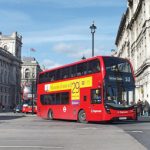OTM, what’s all the fuss about?

October is Transport Month during which the Department of Transport (DoT) will remind us about road safety and boast about some of its achievements over the last 12 months. NKOSINI NGWENYA asks whether there is anything worth boasting about
In 2005, the DoT declared the month of October transport month. The then Minister of Transport, Jeff Radebe, said: “The objective is to celebrate achievements in the transport sector, to raise awareness on the important role of transport in the economy and to encourage participation from civil society and business, including the provision of a safe and more affordable, accessible and reliable transport system in the country.”
The enthusiasm and euphoria that met the launch of October Transport Month (OTM) seems to have died a slow death over the past 12 years. Evidence of this can be found on the DoT website where very little effort has been made to advertise the 2017 OTM.
At the time of writing, the Twitter handle provided on the DoT website – #OTM2017 – has not been shared or received any retweets. In fact, the handle #OTM2017 seems to clash with an event in India (Outbound Travel Mart) that uses the same Twitter handle.
This comes as no surprise to experts in the transport sector, who have repeatedly pointed out that since the launch of OTM there has been no substantial progress in public transport. In most cities in South Africa commuter rail and bus services are being operated haphazardly without reliable timetable schedules, or maps. As a result, public transport systems are underperforming.
“One of the first things the cities can do to prove that they are serious about service delivery is to scrap any plans for OTM. For decades this tiresome charade has wasted resources on silly activities that have merely boosted the catering, conference, printing and t-shirt industries,” says Vaughan Mostert, FOCUS columnist and retired lecturer in transport and supply chain management.
This sentiment is also echoed by Gavin Kelly, technical and operations manager at the Road Freight Association (RFA), who argues that most OTM programmes that the DoT has initiated have been aimed at a select audience and not the general public as proclaimed.
“This explains why there have been no improved public transport and new mass commuter systems. Corruption has remained high and the DoT seems to be immune to the negative effect it has on our society,” he says.
In 2016, OTM was celebrated under the theme “Together we move South Africa forward” with former Transport Minister, Dipuo Peters, urging the South African public to work together in advancing the public transportation system.
She further pointed out that the government would be investing extensively in the transport sector in the hope of rejuvenating public transport, stimulating development and creating jobs.
Mostert is not surprised that the DoT has failed to meet the targets it set for itself last year. “First, the main purpose of public transport is not to create jobs, but to enable other sectors to function properly,” he says.
“We could perhaps create 20 000 jobs overnight by requiring every bus to have a conductor, but where will the money to pay them come from?” he asks.
Mostert further explains that public transport has been monopolised by highly organised cartels that will resort to any means, including violence and murder, to deter new entrants from operating on certain highly profitable routes. As such, only a select few can actively participate in the public transport industry.
“Public transport in South Africa is of such a low standard that many people are being forced to use expensive private cars for their journey to work. Many others, who cannot afford cars, are being forced to pay expensive, unsubsidised private minibus-taxi fares. This not only undermines the economy, it also perpetuates inequality,” says Mostert.
All is not lost, however, and Kelly is of the opinion that OTM can be resuscitated from its current state. He argues that for this to happen the DoT needs to remove outdated and irrelevant legislation currently in place.
“The DoT also needs to improve service delivery in the administration of traffic management services and vastly improve road-safety initiatives,” he notes.
With this in mind, it remains to be seen what will be positively reflected upon and celebrated during this year’s OTM. Following a cabinet reshuffle by President Jacob Zuma, on March 30, Peters was replaced by Joe Maswanganyi.
Since his appointment, it seems Maswanganyi has been inundated with problems relating to the violence between metered taxi drivers and Uber drivers – so much so that he has done very little to improve transport, or to champion a new OTM mandate.
One aspect of public transport that could be embraced by OTM this year is the use of technology in transport. With the advancements in technology, the transport sector has the potential to play a pivotal role in the development of future smart cities.
“As governments look at transportation projects to support national objectives such as job creation, strategic growth and industrialisation, they are looking at ways to optimise transport operations, improve network efficiency and scheduling and increase passenger usage through improved customer experience – and many are turning to technology and Wi-Fi to do just this,” explains Andries Janse Van Rensburg, Ruckus channel manager with Westcon-Comstor.
Let’s see what comes October 31, from OTM 2017.
Published by
Focus on Transport
focusmagsa



